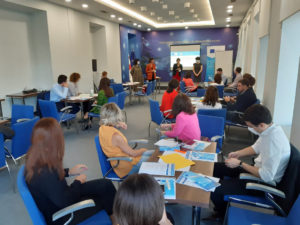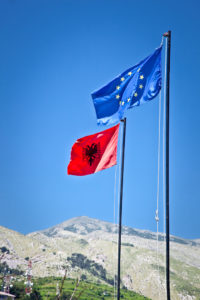
Facility for the Implementation of the EU-Georgia Association Agreement- II
The project aims to strengthen the capacity of public institutions in Georgia to meet the country’s commitments under the EU-Georgia Association Agreement (AA), including the Deep and Comprehensive Free Trade Area.

Technical Assistance for the Capacity Building for the Ministry of European Integration and Line Ministries for the Preparation of the Negotiation Process and Legal Approximation (SMEI IV)
Albania became an EU candidate country following the European Council’s decision in June 2014. The integration process is underway in line with the priorities set out in the Stabilisation and Association Agreement (SAA) and the EU’s Enlargement Strategy. The purpose of this project is to assist the Albanian

Visibility and Communication for Actions Related to AA/DCFTA Implementation in the Framework of the EU Funded Assistance Programmes
The National Implementation Plan of the EU-Moldova Association Agreement (AA) establishes key priorities to foster political association and economic integration with the EU, including actions assigned to institutions involved in the AA/DCFTA (Deep and Comprehensive Free Trade Area). The DCFTA defines a preferential, mutually advantageous trade relationship between

“Setting up a Programme Management Unit to Support the Implementation of Grant Schemes for the Turkish Cypriot Community”, in Northern Part of Cyprus
It can be said that countries need reconciliation, confidence-building, and support regarding civil society. In this way, the overall objective of the programme was to prepare the Turkish Cypriot community for the implementation of the acquis by contributing in particular to social and economic development including restructuring human

Support to the EU Integration Process of Albania
The project aims to assist the Government of Albania to strengthen the EU integration process in line with the priorities of Stabilisation and Association Agreement and accession negotiation processes by: Supporting effective alignment of national legislation with the EU acquis and its implementation. Further strengthening the capacities of

